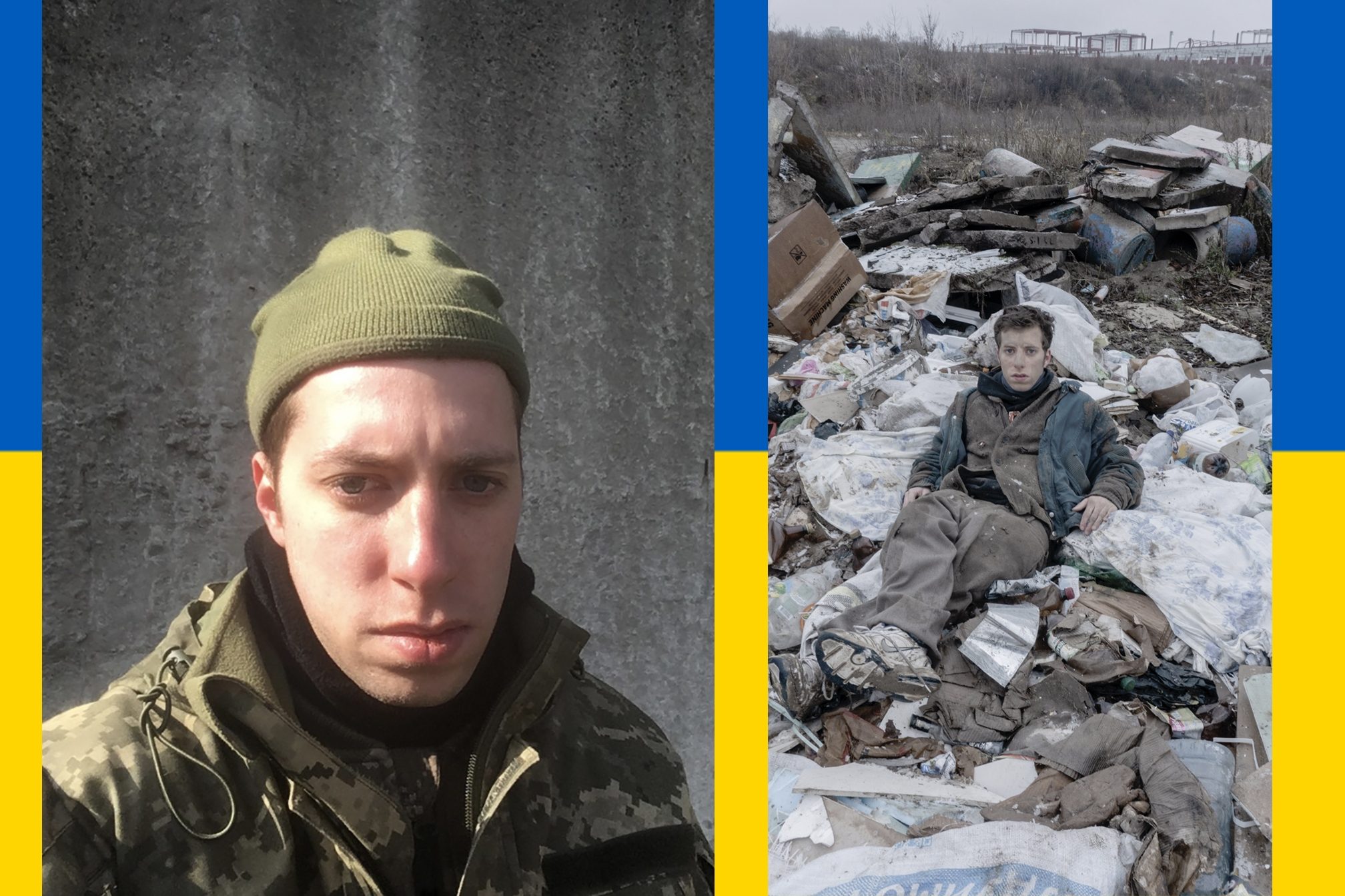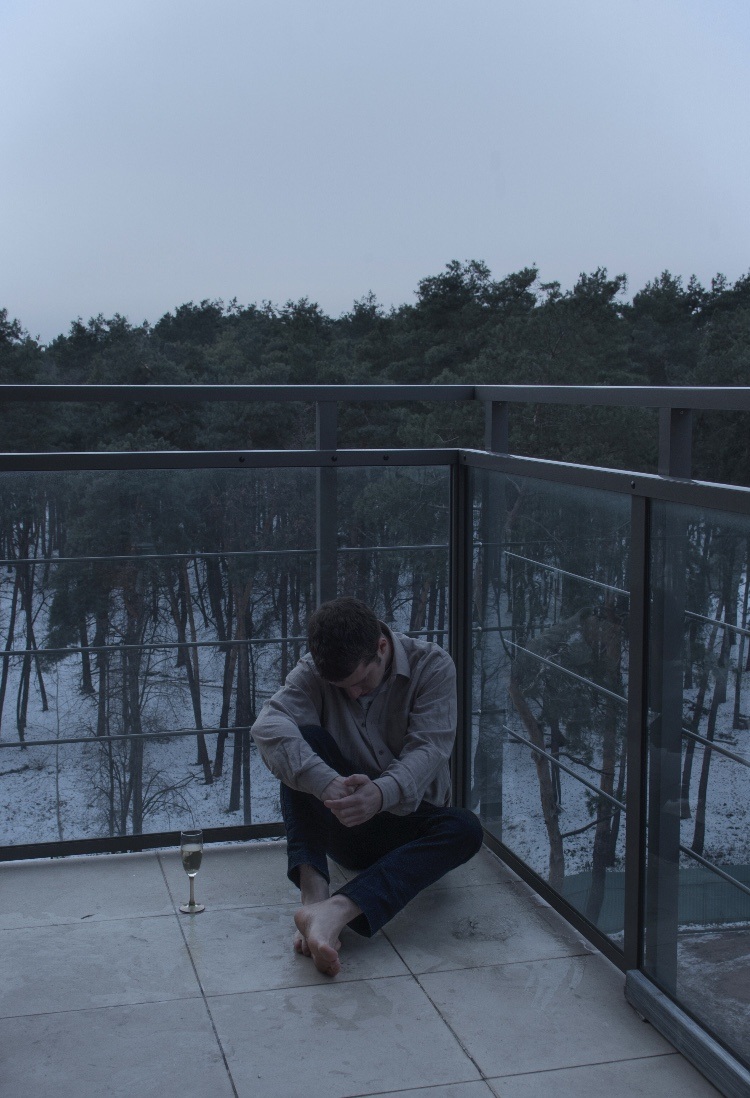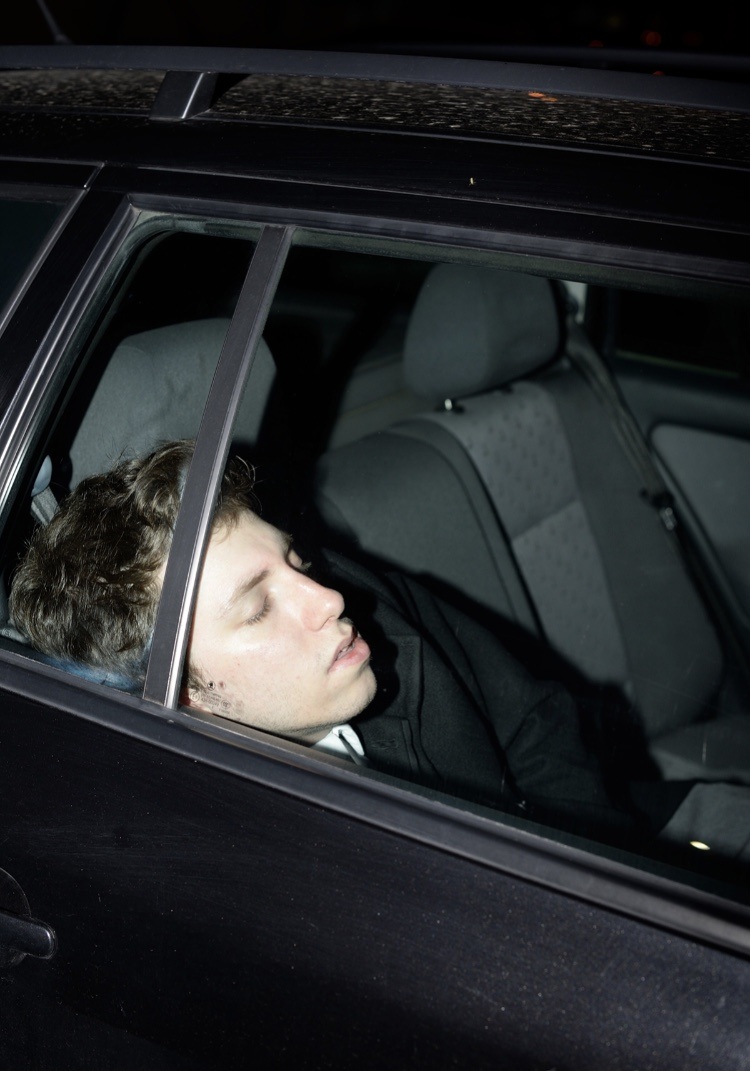 Features
Features
“This is what you do when fascists come”: Kyiv producer John Object on fighting for Ukraine
Kyiv's John Object speaks to Paul Hanford about the Russian invasion, rushing to archive his musical legacy, and enlisting in the army to protect Ukraine
On February 26, two days after Russia began invading Ukraine, John Object, the Kyiv-based producer whose real name is Timur Dzhafarov, did two things in public knowledge. The first, he assembled 58 tracks onto his Bandcamp page. Calling it ‘Life’, the anthology begins with a minute of organ melancholia called ‘Honey’, recorded in 2010 and ends with an edit of Drake’s ‘6 God’, in which Timur rewires the Canadian rapper into a barrage of immaculately placed chopped beats. The description to ‘Life’ warns the listener that many of the tracks are what he considers now self-indulgent or not representative, and also that he had no time to get his hard disk and find the originals.
He had no time because the second thing Timur did that day was to enlist. Over the following month, as Ukraine is destroyed and as the war is phased slowly from Western consciousness to the point where a brawl between two Hollywood millionaires takes up more headlines, Timur has been using his Instagram stories to update the world with his war diary. In these posts, there are many things he cannot mention. Details such as where exactly he is, information about his regiment, information that could risk a court-martial or, as he explains, far far worse. What his diaries do painfully show are the fears and dreams of a young music producer, an artist, a clubber, a lover not a fighter, like you or me, somehow taking each moment as it comes in a war zone. One day, he describes how, standing in line, taking orders, he tried to imagine listening to Lou Reed’s 'Perfect Day' and nearly started crying. On another, walking with his unit he posted “If, according to the late great David Berman, god cuts the clouds into animal shapes, what a cruel deity it would take to put them on our uniforms.”
A few years ago, I was introduced to Timur through one of the key players of Kyiv’s underground electronic party Cxema, who are big fans of his often equally abrasive and beautiful electronica and who had booked him to play for them. His EPs, ‘Heat’ and ‘Pre-Heat’, released through Bio Future Laboratory and the self-released live collection ‘Sweat’ conjure a hyperkinetic abstraction, which, just like fellow beat alchemizer, Ziúr, finds a sweet spot all of its own between floor crunching bass and something more fluidly dreamy.
When we met, it was 2019, we walked around vast aisles of coleslaw and flavoured spring-water of Kyiv’s Ocean Plaza shopping mall. I was caught up exploring the city and John picked this location because he wanted to show a place that to him summed up his changing relationship with the West. It was here, he told me, that he first tried KFC. A few days ago, it was his 27th birthday and talking through Instagram, me in the comfort of a Berlin café, him, in a war zone, I asked if he knows if Ocean Plaza had been affected by Russian destruction. “As with many places in Ukraine, you just don’t know these days,” he told me.

Can you describe your day today?
How I wish I could answer this question, in detail, or at all. In all likelihood, for that, I’d probably face court martial and possibly be shot. I had an idea to type up a neat little paragraph where every third word would be «REDACTED», but luckily for the reader, I can’t bring myself to such gimmicks at this point in life.
If I was careless here, flashy, it would haunt me until the end of the war, every next air raid siren an accusation: It was you! You said too much! You gave us away! You traitor! And so on. What if I left a trail online? A sign, a hint, and something I say here combines with something I’d posted before and becomes an explosive, a crudely aimed Soviet-era missile? Best not to think about it too much. It is now illegal to film or photograph any Ukrainian Armed Forces objects or equipment, and here I am, on the inside, not about to document anything, anything. I promise you we will speak again soon, and I’ll tell you all about these days, right after we win this war. So, for now, this was my day: armed, in uniform, and safe – at least right now, on March 25.
Can you tell me about the lead up to the day of February 24?
It was a different life. All of us had been following the news, watching satellite imagery of the tanks amassing on the border, tanks that are now here, all twisted metal and soot. We discussed ways out and emergency backpacks. I was in it with a sense of bemused detachment, to quote, living with anxiety, ducking on sobriety.
Those last few weeks I’d been working on a collection of EBM/industrial songs in Ukrainian, polishing pissed off, crude lyrics, cautiously testing instrumental versions on friends (invoking comparisons to Front 242 and NIN). I was certain I had time for a release, moreover, I even believed people had time to listen. I told my friends I’d even lay down the vocals at home if I had to, as soon as the first bombs hit Kyiv, but in the end, I couldn’t do it – unfortunately, I had standards.
Two days before the missiles, Andrii, an old friend invited me for the last peacetime beer – soon he would be in the Territorial Defence. The next night, musician Oleksii Podat and I had been drinking and producing music, writing flippant anti-war lyrics all night. He had just moved to Kyiv from Kharkiv two weeks prior, a move we’d been anticipating for years over the course of our decade-old friendship, the place he rented looked barely lived in then. By 4:AM, we’d seen Putin’s address that claimed Ukraine never existed and announced the war, an hour later, we heard the first explosions, then we finished our drinks.
Why did you decide to fight rather than flee?
Leaving was never an option: I am home, I have nowhere else to go. I will never live in Russia.
Frankly, over the course of the slow burn war in the east of Ukraine over the last eight years, it was a scenario I’d played out in my head many times – many Ukrainians did. So, when it happened, it was simple. The first two days were hell, though – in my apartment, before I enlisted, I no longer felt home. Now, following orders here, I am temporarily home again, where I should be. This is what you do when fascists come.
What was the thinking behind putting ‘Life’ out? You say on the Bandcamp that there wasn’t even time to get your hard disk.
The thought process behind 'Life' was just “oh shit.” Those two days of war I spent at home were no time to think about music, but the night before I left I realised this might actually be it for the artist known as John Object, period. If I were to die, I knew, there would be people scouring the internet for my old works, and I didn’t want them around in weird shapes and under wrong titles, I wanted to set the record straight, even though I’d prefer there wasn’t a record at all.
It wasn’t easy or fun to face that music again but war is a time when embarrassment is a luxury. So I forced myself to spend a couple of hours digging through whatever archives I had on hand, getting my hard disk off a shelf and plugging it in would literally take too long, and there it was, the bare tracks of my life laid out.
In your diaries, you draw in lyrical references to David Berman, Lou Reed and more, I wanted to ask you about the nature of music for you, and if it has changed since the war started. I know that there is never a time in my life when I am not humming in my head, is there music in your head during war?
It is the same for me! I am the same way, but not now. I haven’t listened to any music since the first missiles hit near Kyiv, you had to listen for explosions and sirens, and I hated it — I hated it. When I enlisted two days later, I knew from now on there would be no music until peacetime, and my mind obeyed: I don’t hear it in my mind, I don’t hum.
Song references in my speech are inevitable: as a kid, I learned Bowie lyrics first, and English second. All the lyrics I ever knew become building blocks of my language, even now, speaking freely, I can’t help it, I’ll always prefer a song.
After the first weeks of wartime discipline, though, melody started slipping in under the guise of relevant thought. ‘Who the hell makes those missiles?’, looking at pictures of Mariupol, a city with a population of 550,000, under siege, where 100% of buildings have been hit. The knotty riff from ‘I Love a Man in Uniform’ by Gang of Four has not left my head for days, and the chorus of ‘Missiles’ by The Sound is a question I ask myself nightly. No time or resource, for anything else. Last week, in a private corner, I tried to play back ‘I Remember Me’ by Silver Jews in my mind, and I cried quietly before I could even get a quarter of the way through, tears I had to hide, I’m sure I couldn’t explain it to anyone here. Any proper song would now completely destroy me, and it speaks to how hard, how bad of a time I, and other Ukrainians, are having.

Are you able to describe your daily army routine? If there is one?
If there was one, I couldn’t. But no, no routine, war is hell, chaos is hell.
How many of you are there in your unit? Can you tell me about any of the people you’re with?
I’m sure at this point you can predict there will be no details forthcoming on my unit, but I’ll say this: I have talked with soldiers about Fiona Apple and Cxema, I have discussed Pynchon and Hemingway, soviet editions of David Bowie LPs and exchanged Ralph Wiggum quotes. I have met a friend of my mother’s, a journalist I have read, and everyone else, working all kinds of jobs and leading all kinds of lives. We are here to take back our lives, and we will.
What do you say to the West? What are we not doing that we could be?
German politician Marielouise Beck recently said “if their parliament were to begin discussing that there is genocide in progress in Europe, in our immediate vicinity, a two-hour flight away, and we are letting it happen – we will feel uncomfortable and have to do more.” I don’t know if I have ever heard a statement more infuriating, more clearly cruel and just plain painful.
If I could speak to the West, I’d tell everyone, yes, there is a genocide, I’d also bring pictures; I want them to see what we see daily. Here’s a dead child, burned alive in a car with their parents, three bodies ash-grey and yellow, with mouths open in permanent agony, a child on a hospital bed with a bullet wound to the jaw, in a coma, with a tube in her mouth, the hospital’s window sandbagged, a boy looking into the camera, his wounded arm bandaged up, in his eyes – his father, shot, unarmed, in front of him mere hours ago; a withdrawn middle-aged man in wireframe glasses, sitting in an empty square in central Kyiv with framed pictures of his wife and children, killed, gone, dead forever; an old man, crying, kneeling next to a body of his wife, his life companion, among ruins; a pregnant woman in a hospital gown, forlorn, carried out of a destroyed maternity ward in Mariupol on a stretcher; a car, with a large handwritten sign saying CHILDREN in desperate blue ballpoint in the window, the car itself riddled with bullets.
Do not look away, do not distance yourself; better yet, think of these people as citizens of your own country, whichever one it is, for once. Tell yourself these are all Germans and this is Berlin instead of Kyiv. This is London instead of Kyiv. We are the same people as you, and there is a genocide happening in a country just a two-hour flight away; even quicker if you upgrade to a missile.
Here’s a fact: a Ukrainian child (update: two children) has been killed since I started writing these answers and dozens have become refugees since you started reading this finished piece.
Lastly, please know: I don’t want to die. People just like me, and just like you, are being killed, bombed, shelled, just because their home is here, next to fascist Russia. I cannot put into words how real, how here and now it all is: there are missiles currently flying to major Ukrainian cities, people did, and will, die violent deaths today. There is nothing worse than this. This is where a civilised society steps in, this is where a line is drawn – long before this, I’d hoped. Dear free world, I, and millions like me, are in your hands.
Find a list of ways you can support Ukraine here
Paul Hanford is a freelance writer, follow him on Twitter



